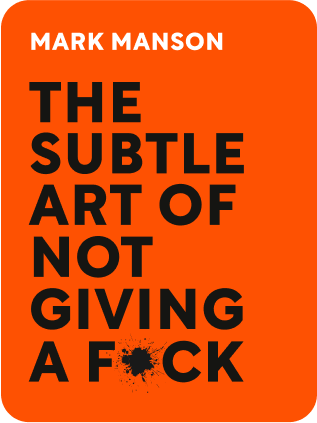

This article is an excerpt from the Shortform book guide to "The Subtle Art of Not Giving a F*ck" by Mark Manson. Shortform has the world's best summaries and analyses of books you should be reading.
Like this article? Sign up for a free trial here .
Do you find yourself wishing or striving for things that you don’t have? What are the negative consequences of chasing superficial dreams?
Society is always urging us to strive for more happiness, money, success, attractiveness, etc. But when we’re always striving, we never get a chance to be happy with what we do have. We need to learn how to filter out what is actually important and what we shouldn’t give a f*ck about.
Continue on to learn why always striving for more will leave you miserable.
Striving for More Won’t Make You Happy
The Subtle Art of Not Giving a F*ck argues that our culture and social media encourage us to pursue superficial things in order to be happy. But we end up feeling miserable because we fail to prioritize — we give a f*ck about too many things rather than choosing and focusing on just a few important things that give our lives meaning. This article is a guide for sorting out what’s important and what’s not, and redirecting our lives to achieve true satisfaction.
Social media, entertainment, and advertising messages urge us to give a f*ck about everything incessantly. We “must” always strive for more — more happiness, more money and success, more experiences, more friends, more possessions, greater attractiveness, and a better body. In addition, self-help “experts” unrealistically urge us to be positive and happy all the time.
But we feel unhappy instead because these messages emphasize what we lack. By constantly wishing/striving for something, you reinforce to yourself that you don’t have it. Then the self-help experts give you superficial, short-term fixes: Stand in front of a mirror and repeat affirmations, or follow 10 easy steps to become rich. The advice further emphasizes what you’re lacking while failing to offer lasting solutions.
The Consequences of Striving
As a result:
- We become addicted to the unreal and fake, and constantly pursue superficial things because we believe more is better. While this is good for business, it’s not good for our well-being.
- We get addicted to temporary highs.
- We become frustrated when we fall short of society’s expectations, and overwhelmed with all we are urged to be and do.
- We feel entitled to always feel good, and we go out of our way to avoid dealing with pain, failure and challenges.
We go through life giving too many f*cks. We need to choose constructive values and standards, then use them to decide what things we care most about — and reject the rest.
Even when you achieve success, fame, and self-improvement, as defined by society, they don’t necessarily lead to a more satisfying life if they aren’t built on constructive values and choices.
Stop Chasing Superficial Dreams
Example: Novelist Charles Bukowski, who worked for 30 years as a postal employee, was an alcoholic and struggling writer. He finally achieved success at age 50 with the book, Post Office. After that he produced six more novels and sold over two million copies. However, his commercial success and fame never made him happy. Bukowski continued to chase superficial highs, including alcohol, and remained miserable because of these negative values. He continued choosing to see himself as a failure until his death, and his tombstone reads, “Don’t Try.”
Despite society’s messages, feeling good all the time is impossible. You can’t attain satisfaction without experiencing pain, struggle, and failure. Anything worthwhile has a negative side (for instance, being physically fit requires painful exercise). If you try to avoid the negative you don’t get to experience the worthwhile thing.
The key to a happy, meaningful life is to give a f*ck about less, and focus on what is most valuable and important to you.

———End of Preview———
Like what you just read? Read the rest of the world's best book summary and analysis of Mark Manson's "The Subtle Art of Not Giving a F*ck" at Shortform .
Here's what you'll find in our full The Subtle Art of Not Giving a F*ck summary :
- How to clarify what's important to you (and not just what you think should be important)
- Why it's okay for things to not always go well in life
- Why you need to care about fewer things






